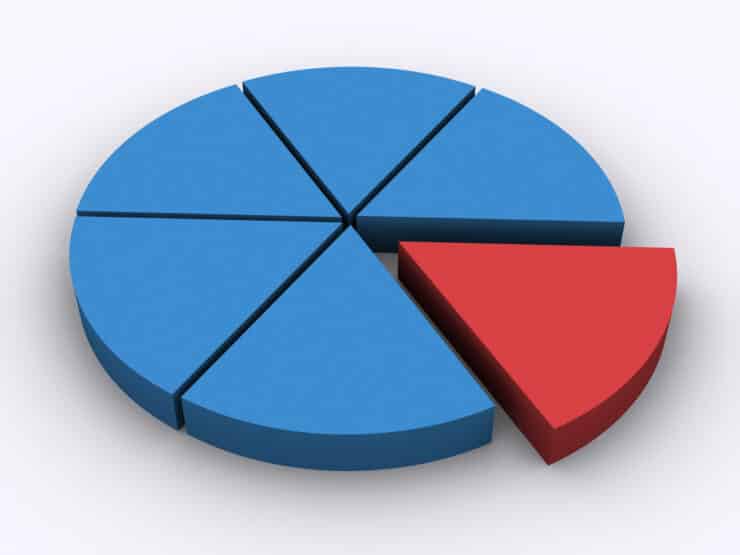Do One Thing: If this is something you’re interested in, it’s key to make sure that your current brokerage firm (or one you’re thinking of using) deals in fractional shares. Most provide detailed information on their websites.
Fractional shares have been gaining momentum in recent years as young investors become more interested in stock market trading and some firms have made it easier to buy a portion of a share instead of the whole enchilada (so to speak).
What are Fractional Shares?
Fractional shares are pieces or portions of a share. So instead of buying a full share of stock, some online investment platforms—and a few apps—allow you to invest a specific dollar amount (which buys you a fraction of a share) in the stock market.
Why’s that? It’s more affordable that way. The cost of many stocks can be cost-prohibitive. Apple was trading near $175 in early October for a single share. While that may be manageable for some, restaurant chain Chipotle will set you back a whopping $1,951 for a single share.
How it Started
The latest wave of fractional share buying began almost four years ago, notes research from the University of Notre Dame, when Interactive Brokers announced fractional trading on Nov. 25, 2019. Robinhood joined them about three weeks later, then Fidelity jumped in at the end of January 2020. By summer, with the pandemic in full swing and millions working from home, Charles Schwab offered up slices of shares, though they restricted the service to S&P 500 stocks.
How it Works
According to the U.S. Securities and Exchange Commission (SEC), this is how the process of buying fractional shares works. Typically, you can place an order to buy or sell fractional shares in either dollar amounts or share amounts. “If XYZ Stock trades for $1000,” notes the SEC, “you could place an order for a fractional share such as .5 shares or a dollar amount such as $500.”
Benefits of Buying Fractional Shares
William Bevins, a certified financial planner in Nashville, is a big believer in providing market access to new investors. Buying fractional shares is one way to do that, he says: “Fractional share ownership is a relatively new concept which allows individuals with limited capital to purchase high-priced shares of stock.”
For some investors, fractional share ownership is their first opportunity to participate in the equity market, says Bevins, adding that “accessibility is a powerful tool for many.” Some brokerage firms allow fractional share purchases as low as $5. And besides offering more access “fractional share ownership also makes diversification, dollar cost averaging, and dividend reinvestment possible,” he says.
Challenges of Fractional Share Ownership
There are some downsides to buying and selling fractional shares. Not all brokerage firms offer fractional share investing. And some of the firms that allow fractional share ownership have limitations for transferability and liquidation.
Plus, even some brokerage firms who offer this service, may not offer it to all of their customers, notes SEC.gov. That’s why it’s important to contact brokerage firms before you buy to determine if they offer fractional share investing, and if so, if the service is available to all customers.
Rules that won’t allow fractional shares to be transferred to outside brokerages can be restrictive, notes Bevins, adding that liquidation requirements when changing brokerage firms can come as a surprise to those unaware of such policies.
Fractional shares also can have voting restrictions. Many corporations require ownership of one full-share before participating in proxy votes or voluntary corporate actions.
How to Get Started Trading Fractional Shares
For those who are not already investing, you’ll need to do a few things before getting started. First, research the stocks and companies you are interested in. Then, check in with some online firms to see if they sell fractional shares. Most provide detailed information on their websites. When you find one who does, you’ll need to open an investment account.
Who Benefits Most?
Typically, people with limited funds are ideal for fractional share ownership. “This can include investing beginners or younger individuals who want to start building a long-term portfolio,” Bevins says. “It’s never too late to begin investing, and with fractional share ownership, it’s never been easier to participate in equity markets.”
With reporting by Casandra Andrews






